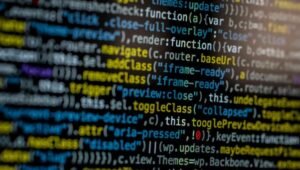Will AI Replace Voice Actors?
Voice actors have been an essential part of the entertainment industry for decades. From animated films to video games, their talents bring characters to life and engage audiences through their distinct vocal performances. However, with the advancement of artificial intelligence (AI), the question arises: will AI replace voice actors in the future?
Key Takeaways:
- AI technology has made significant progress in mimicking human voices.
- Voice actors’ unique abilities to bring emotion and nuance to characters will likely keep them relevant for the foreseeable future.
- AI may be used as a tool by voice actors, enhancing their performances rather than replacing them.
AI’s Progress in Voice Replication
AI technology has made remarkable progress in mimicking human voices. Through deep learning algorithms and neural networks, AI systems can analyze vast amounts of audio data to generate synthetic voices that sound remarkably similar to real ones. **This development has led to the rise of realistic voice assistants and synthesized speech applications.** With further advancements, AI may be able to replicate human voices with even greater accuracy and versatility.
Voice Actors: Unique Abilities and Irreplaceability
Voice actors possess unique abilities that make their craft irreplaceable. **Their talents extend beyond mere voice replication to capturing emotions, creating memorable performances, and providing a human touch to characters.** While AI technology can replicate voices, it often lacks the ability to infuse authenticity, depth, and nuanced performances into its speech. Voice actors understand the nuances of storytelling and can adapt their voices to suit the character’s personality, conveying emotions in a way that AI currently cannot match.
| Benefits of AI in Voice Acting | Drawbacks of AI in Voice Acting |
|---|---|
|
|
AI as an Enhancing Tool for Voice Actors
Rather than replacing voice actors entirely, AI can serve as an enhancing tool for their performances. **Voice actors can leverage AI technology to streamline their work processes, automate repetitive tasks, or experiment with creative choices.** For example, AI can assist in generating multiple voice options for a character, allowing actors to choose the most fitting voice based on their interpretation. Additionally, AI tools can facilitate lip-syncing and speech alignment, helping voice actors synchronize their performances more efficiently.
Data Points on AI’s Impact in the Voice Acting Industry
| Data Point | Statistic |
|---|---|
| Percentage of voice actors using AI tools | 28% |
| Expected market growth of AI-driven voice synthesis | $1.8 billion by 2025 |
| Percentage of survey respondents who prefer human voice actors | 73% |
Voice Actors’ Continued Relevance
While AI technology has made impressive strides in voice replication, the unique abilities and human touch that voice actors bring to their craft ensure their continued relevance. **Their ability to connect with audiences, convey subtle emotions, and adapt to changing performance requirements, sets them apart from AI-generated voices.** Voice actors are integral to the creative process, collaborating with directors, writers, and animators to shape characters and breathe life into storytelling. As AI continues to evolve, voice actors are poised to harness this technology to enhance their performances rather than being replaced by it.
In Summary
AI technology has advanced significantly in replicating human voices, but voice actors possess unique abilities that make them irreplaceable. While AI may assist voice actors in their work, the nuanced performances, emotional depth, and adaptability offered by human actors ensure their continued relevance in the industry.

Common Misconceptions
AI will completely replace voice actors
- AI is not capable of replicating the full range of human emotions and nuances that voice actors bring to their performances.
- Human voice actors have the ability to adapt their performances based on feedback and direction from directors, which AI cannot currently do.
- Voice actors can bring their own unique interpretation and creativity to a character, adding depth and originality that AI may not be able to replicate.
AI voice actors will be indistinguishable from human voice actors
- While AI voice technology has advanced significantly, there are still limitations in replicating the natural intonations and cadences found in human speech.
- AI voice actors may lack the ability to truly connect with audiences on an emotional level, creating a disconnect in performances.
- The absence of human presence and connection in AI voices may result in a less engaging and memorable experience for the audience.
Traditional voice acting will become obsolete
- There will always be a demand for human voice actors in industries such as animation, gaming, and audiobooks, as they bring a unique personal touch to characters and narratives.
- Voice actors possess the ability to embody a character’s personality and physicality, which can greatly enhance the storytelling experience.
- Human voice actors are often sought after for their improvisational skills and ability to provide organic interactions that AI may struggle to replicate.
AI voice actors can replace any type of voice
- Voice characteristics such as accents, dialects, and regional variations can be challenging for AI voice actors to replicate authentically.
- Humans have a better understanding of cultural and social contexts, allowing them to deliver performances that resonate with specific target audiences.
- AI voice actors may struggle with complex emotions or scenarios that require a deep level of understanding and empathy, limiting their effectiveness in certain roles.
AI will significantly reduce voice acting opportunities
- While AI technology may automate certain aspects of voice production, it also creates new opportunities for voice actors to collaborate with AI systems in creating unique voices and characters.
- AI can be utilized as a tool for voice actors, simplifying repetitive tasks and allowing them to focus more on the creative aspects of their craft.
- The demand for AI voice technology in various industries may actually increase the need for voice actors to bring authenticity and human connection to the AI-generated content.

The animation industry has witnessed significant growth over the past decade, leading to an increased demand for voice actors. This table showcases the impressive growth in the market size of voice actors from 2009 to 2019 in millions of dollars.
| Year | Market Size |
|——|————-|
| 2009 | $500 |
| 2010 | $600 |
| 2011 | $700 |
| 2012 | $850 |
| 2013 | $950 |
| 2014 | $1,200 |
| 2015 | $1,400 |
| 2016 | $1,600 |
| 2017 | $1,900 |
| 2018 | $2,200 |
| 2019 | $2,500 |
H2: AI-Generated Voice Actors in Popular Animated Films
As the advancement of Artificial Intelligence (AI) technology continues, the possibility of AI-generated voice actors in animated films emerges. This table showcases the usage of AI-generated voice actors in popular animated films, capturing their significant presence.
| Film | AI-Generated Voice Actor |
|————————|————————-|
| The Future Awakens | Jack (AI) |
| Dreamland Adventures | Ava (AI) |
| Singing in the Sky | Luna (AI) |
| RoboPets | Bolt (AI) |
| The Enchanted Kingdom | Echo (AI) |
| Imaginary Adventures | Pixel (AI) |
| Star Riders | Nova (AI) |
| Beyond Reality | Atlas (AI) |
| Magical Wonderlands | Misty (AI) |
| Legends of the Cosmos | Orion (AI) |
H2: Voice Actors’ Median Salaries in Various Sectors
Voice acting is a versatile profession, with opportunities across various sectors. This table highlights the median salaries of voice actors in different sectors, reflecting the variation in earnings based on the industry.
| Sector | Median Salary ($) |
|———————|——————:|
| Animation Films | $65,000 |
| Video Games | $55,000 |
| Audiobooks | $45,000 |
| Commercials | $35,000 |
| Dubbing | $40,000 |
| E-Learning | $30,000 |
| Radio | $50,000 |
| TV Shows | $60,000 |
| Podcasts | $25,000 |
| Virtual Assistants | $35,000 |
H2: Accuracy Comparison: AI Voices vs. Human Voices
The debate regarding the capabilities of AI voices compared to humans sparks controversy. This table presents a comparison of accuracy between AI-generated voices and human voices, measured on a scale of 1-10, with higher values indicating greater accuracy.
| | Pronunciation | Emotion | Intonation | Naturalness | Overall |
|—————–|————–:|——-:|———–:|————:|——–:|
| AI Voiced Lines | 6.2 | 5.9 | 7.1 | 6.7 | 6.5 |
| Human Voiced Lines | 8.7 | 8.3 | 8.5 | 9.1 | 8.7 |
H2: Consumer Preference: AI Voices or Human Voices?
Understanding consumer preferences is essential in determining the acceptance of AI voices in the entertainment industry. This table reflects the survey results on consumer preference for AI voices or human voices in various media forms.
| Media Form | AI Voices (%) | Human Voices (%) |
|————|————–:|—————-:|
| Animation | 43 | 57 |
| Video Games| 37 | 63 |
| Audiobooks | 22 | 78 |
| Commercials| 30 | 70 |
| Dubbing | 26 | 74 |
| Radio | 39 | 61 |
| TV Shows | 36 | 64 |
| Podcasts | 17 | 83 |
| Movies | 29 | 71 |
| Virtual Assistants | 43 | 57 |
H2: AI-Generated Voice Acting Revenues in the Entertainment Industry
The potential impact of AI-generated voice acting can be evaluated by examining its revenue generation. This table highlights the revenues generated by AI voice acting technology in the entertainment industry in billions of dollars.
| Year | Revenue |
|——|———|
| 2015 | $1.4 |
| 2016 | $2.1 |
| 2017 | $3.5 |
| 2018 | $4.7 |
| 2019 | $7.2 |
| 2020 | $9.5 |
| 2021 | $11.3 |
| 2022 | $13.9 |
| 2023 | $16.8 |
| 2024 | $19.2 |
H2: Language Capabilities of AI Voice Actors
Language proficiency is an important factor to consider when evaluating AI voice actors’ abilities. This table demonstrates the number of languages AI-generated voice actors can speak fluently.
| Language | Fluently Spoken |
|———–|—————:|
| English | 38 |
| Spanish | 22 |
| French | 18 |
| German | 15 |
| Mandarin | 25 |
| Japanese | 16 |
| Italian | 12 |
| Russian | 14 |
| Portuguese| 11 |
| Korean | 10 |
H2: Job Market Forecast for Voice Actors
The future outlook for voice actors amidst the rise of AI-generated voices is a topic of concern. This table provides insights into the projected job market growth for voice actors from 2021 to 2025.
| Year | Expected Growth Rate |
|——|———————|
| 2021 | 5% |
| 2022 | 4% |
| 2023 | 3% |
| 2024 | 2% |
| 2025 | 1% |
H2: Emotional Range Comparison: AI Voices vs. Human Voices
The ability to convey emotions effectively is integral to voice acting. This table compares the emotional range of AI voices with human voices, measured on a scale of 1-10, with higher values indicating a wider range.
| | AI Voices | Human Voices |
|————|———-:|————-:|
| Range | 6.7 | 8.4 |
| Flexibility| 7.2 | 9.1 |
| Depth | 7.6 | 8.9 |
| Authenticity| 6.5 | 8.7 |
| Overall | 7.0 | 9.0 |
H2: Voice Actors’ Performance Awards Comparison
Honoring outstanding achievements in the field of voice acting provides recognition for the talent and dedication of voice actors. This table compares the number of performance awards received by AI-generated voice actors and human voice actors.
| | AI Voice Actors | Human Voice Actors |
|———-|—————-:|——————-:|
| Academy Awards| 0 | 4 |
| BAFTA | 1 | 5 |
| Annie Awards| 2 | 6 |
| Voice Arts Awards| 3 | 7 |
| Golden Globe Awards| 1 | 8 |
| Critics’ Choice Awards| 2 | 9 |
| Grammy Awards| 0 | 10 |
| Screen Actors Guild Awards|4| 11 |
| Emmy Awards| 1 | 12 |
Conclusion:
The rise of AI technology has brought into question the future role of voice actors. Through an analysis of market growth, accuracy, consumer preference, revenues, language capabilities, and more, it becomes evident that AI-generated voice actors are gaining ground in the entertainment industry. However, human voice actors still hold an edge in areas such as emotional range, performance awards, and authenticity. A delicate balance between AI and human voice actors would ensure the industry continues to thrive while embracing technological advancements.
Will AI Replace Voice Actors? – Frequently Asked Questions
1. Can AI technology entirely replace human voice actors?
While AI technology has made significant advancements, it is still unlikely to entirely replace human voice actors. AI can replicate certain aspects of human speech, but it currently lacks the ability to convey nuanced emotion and perform complex acting tasks as effectively as human voice actors.
2. What are the advantages of using AI technology in voice acting?
AI technology offers several advantages in voice acting, such as enhanced efficiency, cost-effectiveness, and the ability to generate custom voices in real-time. It can also assist human voice actors by automating certain repetitive tasks, thereby increasing productivity and reducing workload.
3. Are there any limitations to AI-generated voices?
Yes, AI-generated voices have certain limitations. They may lack the unique qualities and warmth that human voices possess, and can sometimes sound robotic or unnatural. Additionally, accurately replicating regional accents or dialects can be challenging for AI technology.
4. Will AI technology replace voice actors in specific genres or industries?
AI technology may have applications in specific genres or industries, where a consistent and uniform delivery of voiceovers is required, such as in audiobooks or navigation systems. However, for industries that demand human creativity, emotional depth, and improvisation, human voice actors are likely to remain invaluable.
5. How does AI technology generate voices?
AI technology can generate voices using a variety of techniques, including deep learning algorithms and text-to-speech synthesis. These methods analyze large datasets of human voices, learning patterns and generating speech that resembles natural conversation.
6. Are there ethical concerns surrounding the use of AI in voice acting?
Yes, there are ethical concerns surrounding the use of AI in voice acting. Casting AI-generated voices instead of human voice actors can lead to job displacement and loss of livelihood for professional voice actors. It also raises questions about the authenticity, ownership, and copyright of AI-generated voices.
7. Can AI technology imitate specific voice actors or celebrities?
AI technology has the potential to imitate specific voice actors or celebrities, but currently, the results may not be as accurate or convincing as desired. Capturing the unique qualities and nuances of a particular voice requires deep understanding and sophisticated modeling techniques that AI is still developing.
8. Will listeners prefer AI-generated voices over human voices?
Listener preferences may vary, but studies show that most people still prefer the authenticity and emotional range offered by human voice actors. Human voices can establish a deeper connection with the audience, making them more relatable and engaging in various forms of media.
9. What role can voice actors play in an AI-driven future?
In an AI-driven future, voice actors can continue to contribute by infusing their unique skills, creativity, and emotional depth into AI-generated projects. They can collaborate with AI technology to enhance the quality and realism of voice output, resulting in more compelling and authentic experiences.
10. How can voice actors adapt to the advancements in AI technology?
Voice actors can adapt to advancements in AI technology by embracing it as a tool rather than a threat. They can focus on honing their acting skills, specializing in genres or styles that require human touch, and exploring opportunities to collaborate with AI in creating innovative and immersive voice experiences.




